I presented a community workshop on making money as an artist for a radical artists collective this week, and it got me thinking about the ways in which people actually make it, as creative workers, stuck at essentially this intersection:

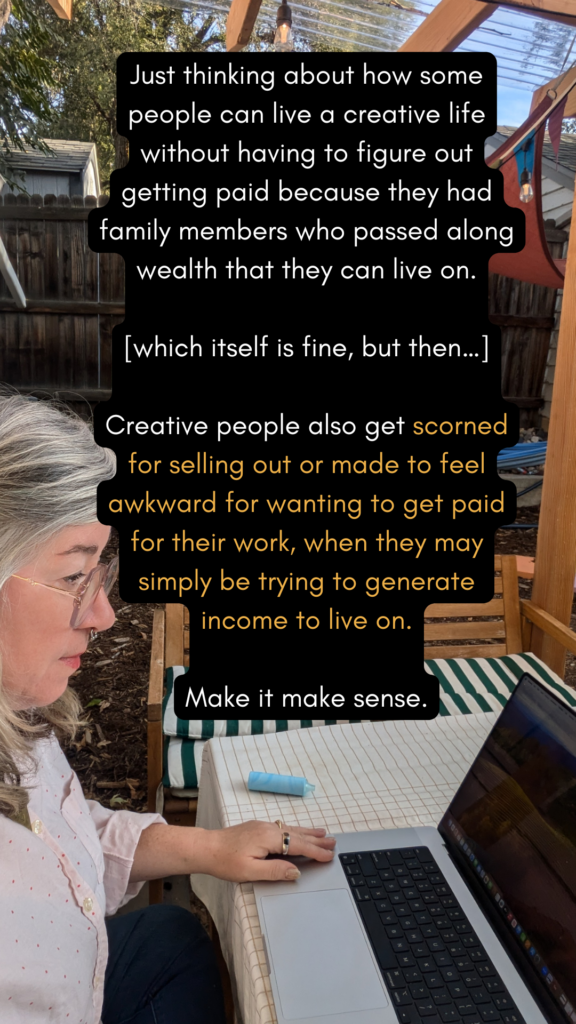
I presented a community workshop on making money as an artist for a radical artists collective this week, and it got me thinking about the ways in which people actually make it, as creative workers.

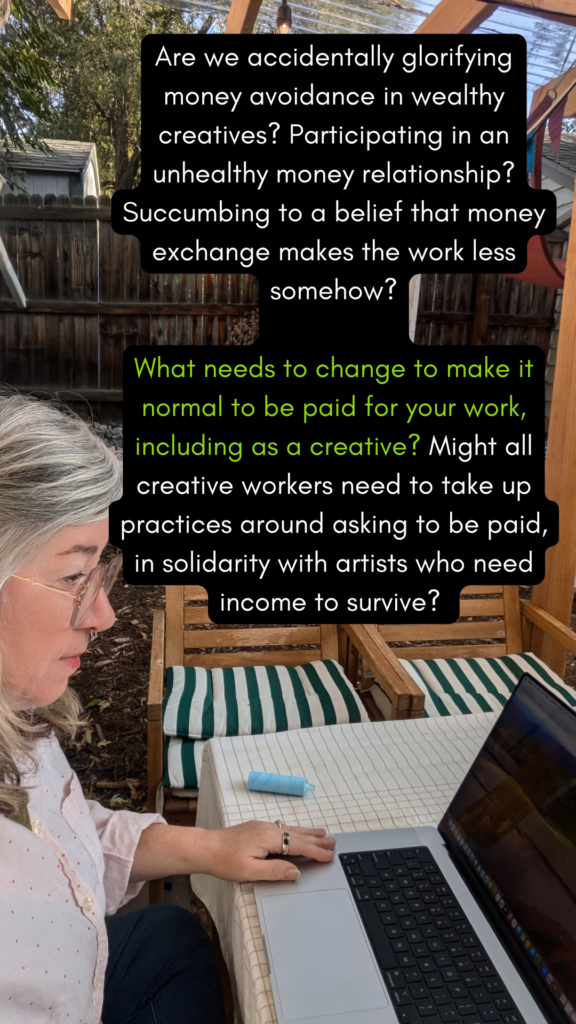
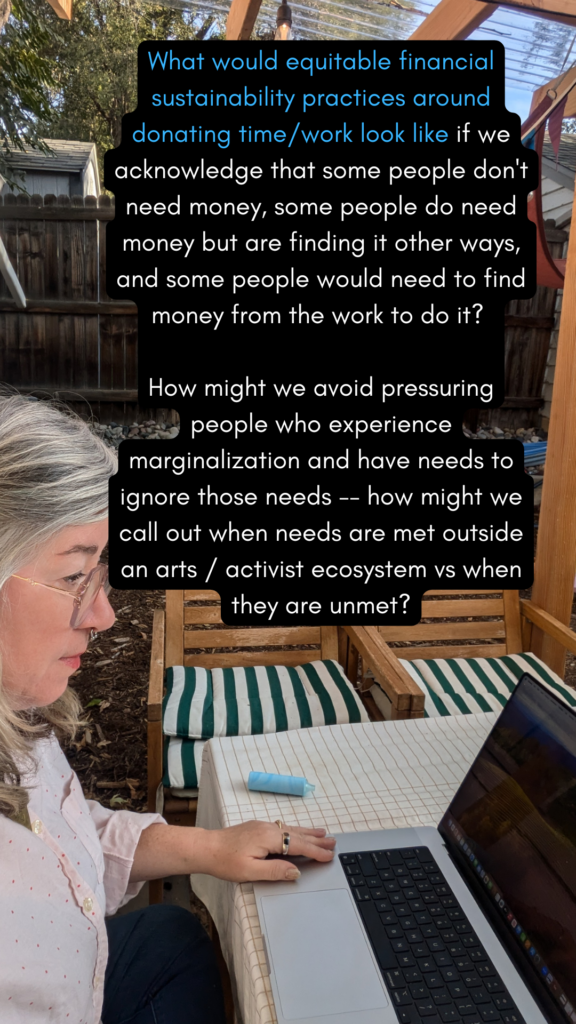
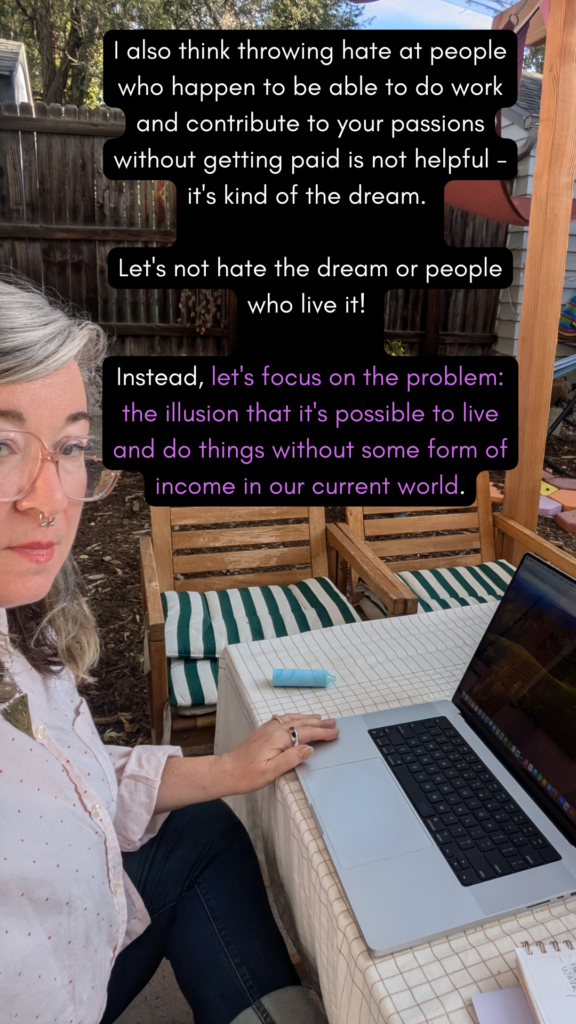
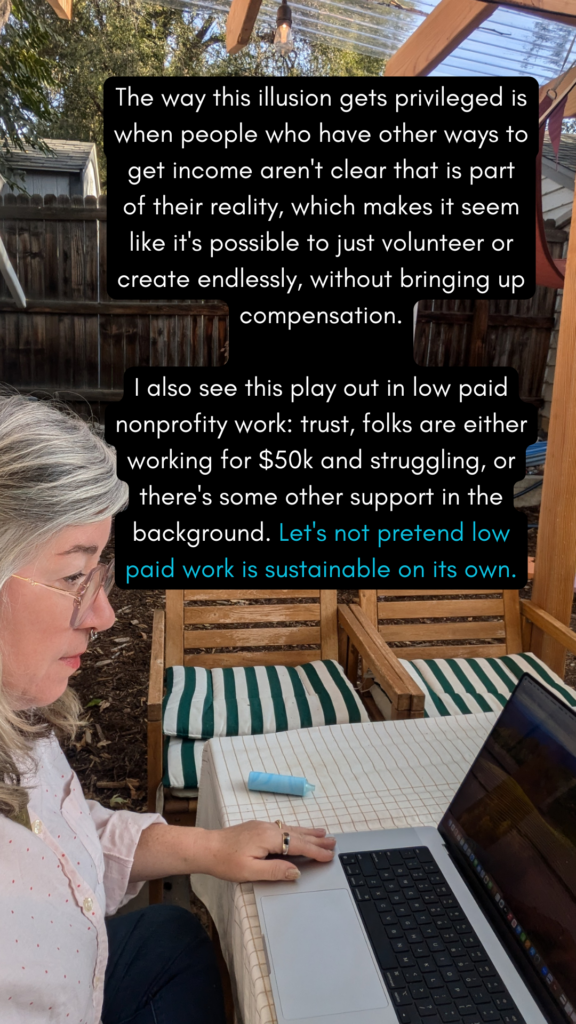
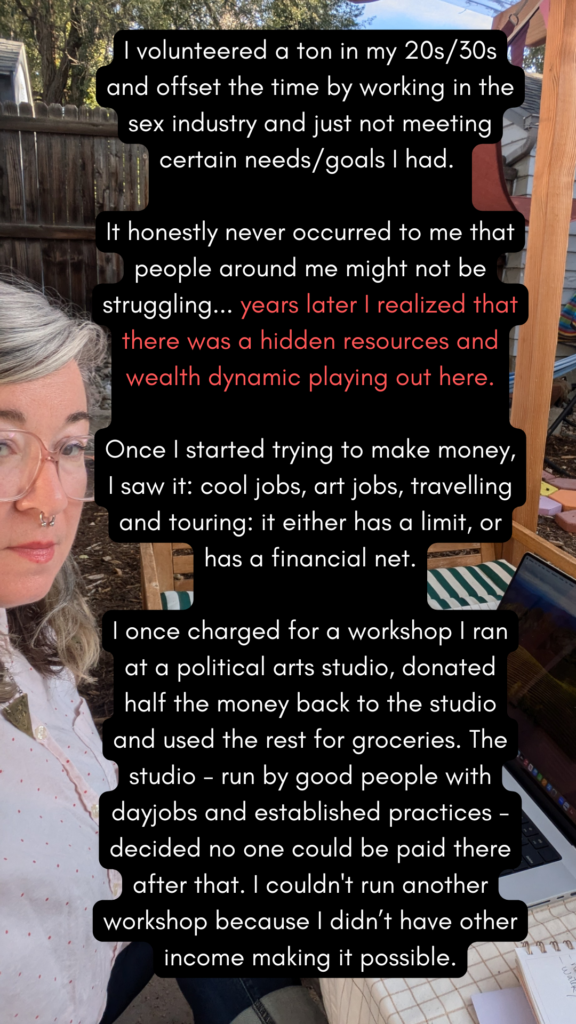
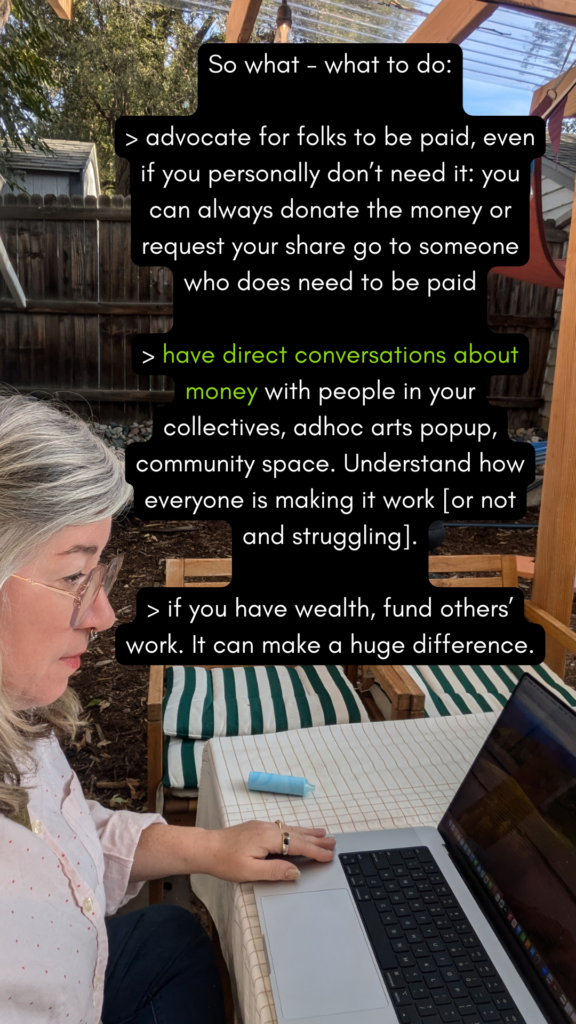
Just thinking about how some people can live a creative life without having to figure out getting paid because they had family members who passed along wealth that they can live on.
[which itself is fine, but then…]
Creative people also get scorned for selling out or made to feel awkward for wanting to get paid for their work, when they may simply be trying to generate income to live on.
Make it make sense.
Just because some people don’t need to be paid to make their art, doesn’t mean you’re a capitalist if you DO need to be paid. If anything, it means people who don’t need to earn money had successfully capitalist families… No one controls their family of origin – but why do people who need money to live experience pressure to not try to get paid, in creative and movement scenarios?
Are we accidentally glorifying money avoidance in wealthy creatives? Participating in an unhealthy money relationship? Succumbing to a belief that money exchange makes the work less somehow?
What needs to change to make it normal to be paid for your work, including as a creative?
Might all creative workers need to take up practices around asking to be paid, in solidarity with artists who need income to survive? If you don’t need the money, you could always donate it…
What would equitable financial sustainability practices around donating time/work look like if we acknowledge that some people don’t need money, some people do need money but are finding it other ways, and some people would need to find money from the work to do it?
How might we avoid pressuring people who experience marginalization and have needs to ignore those needs — how might we call out when needs are met outside an arts / activist ecosystem vs when they are unmet?
I also think throwing hate at people who happen to be able to do work and contribute to your passions without getting paid is not helpful – it’s kind of the dream.
Let’s not hate the dream or people who live it!
Instead, let’s focus on the problem: the illusion that it’s possible to live and do things without some form of income in our current world.
The way this illusion gets privileged is when people who have other ways to get income aren’t clear that’s happening, which makes it seem like it’s possible to just volunteer or create endlessly, without bringing up compensation.
Impacts on me
I volunteered a ton in my 20s/30s and offset the time by working in the sex industry and just not meeting certain needs/goals I had.
It honestly never occurred to me that people around me might not be struggling…years later I realized that there was a community contribution dynamic playing out here.
Once I started trying to make money, I saw it: cool jobs, art jobs, travelling and touring: it either has a limit, or has a financial net.
I once charged for a workshop I ran at a political arts studio, donated half the money back to the studio and used the rest for groceries. The studio – run by good people with dayjobs and established practices – decided no one could be paid there after that. I couldn’t run another workshop because I didn’t have other income making it possible.
I also see this play out in low paid nonprofity work: trust, folks are either working for $50k and struggling, or there’s some other support in the background. Let’s not pretend low paid work is sustainable.
So, what instead:
- advocate for folks to be paid, even if you personally don’t need it: you can always donate the money or request your share go to someone who does need to be paid
- have direct conversations about money with people in your collectives, adhoc arts popup, community space. Understand how everyone is making it work [or not and struggling].
- if you have wealth, fund others’ work. It can make a huge difference.